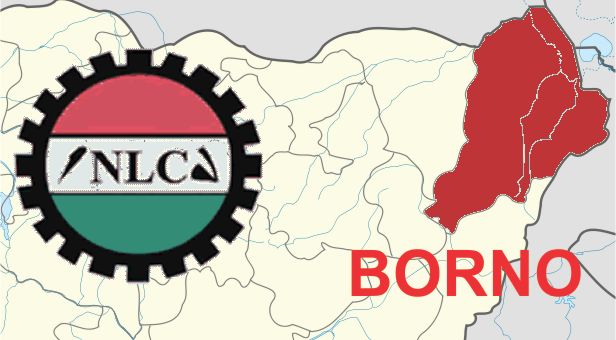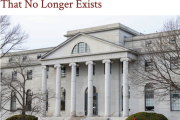
The author
By Comrade Zanna Shettima
I am grateful to the NLC for this invitation to me. Let me congratulate the Chairman and members of this committee and wish them fruitful deliberations that would result in vindicating the confidence reposed on them. I want to believe this assignment can be understood as a quest to resuscitate and rejuvenate the civil service.
I don’t think it is as easy as stated. However, given the cream members of this committee are, I am sure they will live up to expectations. In this regard let me advise as follows:
- Let us draw themes and sub-themes,
- Break into syndicates in order to generate sound views but based on our discussion in the services and experience.
- Let the syndicates present their reports for deeper analysis
- We synthesize the conclusions into one document as our report, and
- Let us appreciate other critical issues like competence and the challenges of economic reforms and how they impact on bureaucracy.
We all know the civil service is a creation of our laws and it is run in accordance with the rules, regulations and procedures. In this regard, where do we locate the death of the civil service? Is it failure to adhere to known rules, regulation and procedures? Or, both the quality of the personnel and governance?
Let me suggest further a good diagnosis and prescription that treats the ailment as is acquired. We should avoid addressing the symptoms. We should appreciate who we are and how posterity will accommodate what we are going to do. It is important to see the civil service as an indispensable institution where loyalty should go to the state and not any individual. Let us also appreciate the pressures compelling the civil servant to be compromised.
Institutional Factors Undermining Smooth Operation of the Civil Service
The civil service is an institution and has its structures in which the civil servants co-operate. As an institution, it has:
- a purpose for its establishment;
- Personnel
- Rules and, can enforce its rules, etc.
All institutions have factors affecting their performance, for example: –
- Information processing;
- Audit
- Leadership
- Policy application and observance or otherwise; etc.
However, the transformation of its inputs for achieving certain objectives is the paramount basis of assessing its performance. In, however, assessing institutional factors undermining the smooth operation of the civil services, aside considering the fore-going factors, it is desirable to adopt the following approaches; viz:
- Goal Approach: In this context, performance is evaluated through the ability to achieve the goals set-forth by the organization for service delivery by the civil servants; and
- System Resource Approach – Organizations are created in different ways but by the values expectations of multiple exigencies.
In order therefore, to appropriately situate the institutional factors undermining smooth operation of the civil service, it is imperative to re-appraise the trajectory of the civil service especially in the following compartments of its evolution, viz: –
- The colonial civil service; and,
- The post colonial civil service

Flashback to Decree 43 of 1998?
The goals set to be attained in these various periods are distinct; clear and, defines the organizational, personnel selection and training, remuneration and, condition of service plus security of tenure; etc.
The colonial civil servant had a basic goal of protecting the colonial system and its interests. The structure was organized in such a way that leadership and hierarchical settings were designed to meet the goals of colonial administration. The post colonial civil service has to contend with the duality of interests and this manifested later in how leadership moved into the hands of the military.
But the most challenging period in the second phase must be the period of the Structural Adjustment Programme, (SAP) which came with fundamental reforms through decrees such as Decree 43 of 1988. That decree attempted to, according to its authors, professionalize the system, modus-operandi and control of the system. The impact of that reform is still being felt in the system as the goals of the civil service became oriented towards “Development Administration” rather than “public” Administration”. Also, loyalty and mobility became tempered with and adherence to rules, procedures and even respect for skills and competence became compromised. Sequel to these, organizational inputs and output for achieving certain outcome became undermined and, consequently, the civil service became comatose, with the foundation for undermining smooth institutional operation laid in such decrees.
The return to civilian rule does not appear capable of reversing the trend. Indeed, it has complicated the situation as loyalty became re-defined and the whims and caprices of the powers that be are still the rule books to the detriment of known traditions, rules and procedures.
Fear and quest for survival has forced the civil servant into toadying rather than speaking out against the dislocations. ‘Yours faithfully’ who is supposed to be seen, not heard, is now compelled to live with breaching all the established factors for making the civil service efficient and vibrant.
Personnel selection plus reward and punishments are now defined and driven by other considerations and these greatly ruined the system. The deepening effect of the reform especially with respect to the provision of social services and security has compellingly compromised the civil servant. These negative propensities have, therefore, encouraged deviant organizational behaviours and jettisoning of rules and regulation especially in auditing; budgeting and other in-built checks which now characterize the system. Record keeping and retrieval is seriously undermined and this denies connectivity between extant policies with previous ones. The implication is apparent in lack of continuity or delivery of service in the best interest of goals of public policy and its management.
In-view of the fore-going and many observable constraints, what needs to be done becomes an issue. The approach should now focus on both goals and resources.
In this context, leadership skills, training; motivation, reward and punishment plus insulating the service from encroachment by political office holders constitute the challenge to be addressed. In brief, therefore, the institutional factors are the primary challenges and addressing them most appropriately and immediately is an imperative, especially in an economy that is heavily dependent on the civil servants. Above all, this task should not be seen as an initiative in merely showing concern but appreciating what it involves and in meeting the exact demands entailed in resuscitating and rejuvenating the service. No government can either relegate its bureaucracy or see it as a burden or liability. The bureaucracy is a durable institution that neither belongs to the government of the day nor is it merely about serving what exists. That explains the presence of permanent secretaries who though are not permanent but whose title must suggest to the discerning that the service is permanent. This is further explained by the way the constitution creates the office of the Head of Service. Equipping the service and guaranteeing its place in the scheme of governance benefits the public whose interest is the basis of governance.
Adequate Training and Training Facilities
Whatever training is availed the civil servant will be dictated by the goals set forth for the service to achieve on the one hand and, on the other hand, the competence of the leadership that should define the quality of the personnel it required.
Also, training can be within and without the service, the former achievable through mentoring and tutelage and thus, to a larger extent, will be determined by the skills and preparation of the civil service leadership.
The civil servant is not very much bothered about span of his tenure given that he has thirty five (35) years to serve. He is not driven by his popularity in a narrow constituency or competing to amass wealth with which to seek-election. He has clear parameters and methodologies which he has mastered and internalized in practice. Training within is, therefore, more important than without given the current level of post-secondary education attained by entrants. Training without is an incentive and, indeed, desirable as this will widen experience and sharpen the world view of the civil servant.
Bureaucracy and the Bad Press Syndrome
‘Bad press’ syndrome is an inevitable feature of the modern society and it has to be tolerated. Above all, the press relies on what the general public regards as sensationalism and advertisement to secure their survival. The best way to check-mate this tendency is permitting the public press to be as public as possible and be conscious of its twin duty; namely sensitization and mobilization but driven by professionalism. However, the civil service should exploit known avenues of rectification of ‘bad press’ and seeking damages where done.
Stability in the Civil Service
The best way to maintain stability in the civil service is its insulation from politics and politicians. But, it needs to be appreciated that instability would always characterize politics, politics being a game of conflicting interests. Social services for the public are not meant to generate profit but satisfy the basic needs of the public. The quality of the service is measurable but not through profit and loss processes.
Contribution to a Round-Table Interactive Discourse Organised By the Borno State Council of the Nigeria Labour Congress, (NLC) on the State and Status of the Borno Civil Service. The author was the State Chairman of the NLC from 1998 – 2003.




























